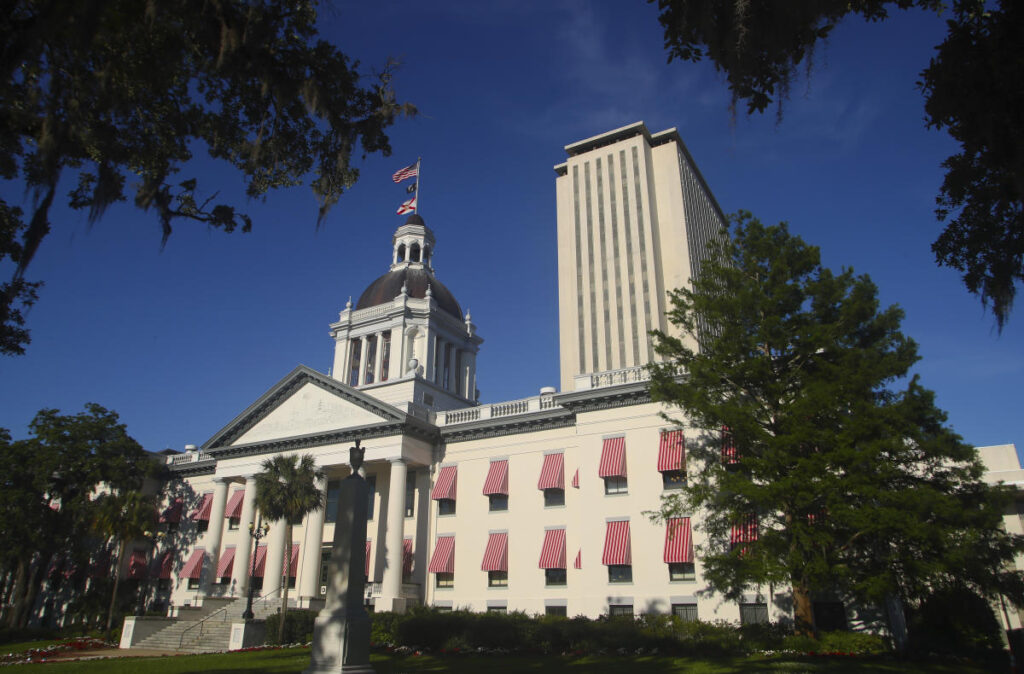As Florida approaches the beginning of its upcoming legislative session, Republican Governor Ron DeSantis finds himself at a pivotal juncture that could significantly test his influence over the state. Following a missed opportunity to challenge President-elect Donald Trump for the Republican presidential nomination, many observers are eagerly analyzing how DeSantis will navigate the final two years of his second term. Despite the potential for a lame-duck situation, DeSantis has shown a keen ability to shape state policy and galvanize support for his conservative agenda. His administration has embarked on various controversial measures, including restricting abortion access and promoting educational reforms through school vouchers, solidifying Florida’s position as a battleground for conservative policies.
Recently, DeSantis achieved a notable electoral victory by actively campaigning against two citizen-supported ballot initiatives aimed at protecting abortion rights and legalizing recreational marijuana. Though both measures received substantial backing from the electorate, they ultimately fell short of the 60% threshold required to amend the state constitution. The governor’s administration mobilized extensive resources and public funding to oppose these initiatives, raising concerns from critics regarding the legality of utilizing state resources for political campaigns. Nonetheless, Senate President Ben Albritton praised DeSantis’ leadership in defeating the amendments, indicating a strong alignment between the governor and incoming legislative leaders, which could facilitate the continuation of his agenda.
Skepticism still surrounds the use of public funds for political messaging, as comments from watchdog groups suggest that DeSantis may be pushing the boundaries of permissible conduct in this area. Newly appointed House Speaker Danny Perez emphasized that all government spending, including the funding of political campaigns, should be subject to rigorous scrutiny. This commitment to examination reflects a desire among lawmakers to ensure responsible governance, perhaps indicating that DeSantis’ future initiatives could encounter more legislative oversight than in previous years.
While DeSantis has been successful in advancing his conservative agenda thus far, recent speeches from legislative leaders revealed a notable lack of emphasis on LGBTQ+ issues and diversity initiatives—key components of DeSantis’ national platform. Both Albritton and Perez suggested a more tempered approach to governance, advocating for addressing concerns such as soaring maintenance costs for condominium owners and the affordability crisis statewide. These comments may denote a shift in legislative priorities and an indication that the upcoming session may not be solely dedicated to furthering the governor’s more controversial agenda.
Florida House Minority Leader Fentrice Driskell has utilized the recent discussions to urge her Republican colleagues, who overwhelmingly dominate both legislative chambers, to acknowledge and respect the will of Florida voters advocating for abortion rights. Currently, the state law limits most abortions to within six weeks of pregnancy, well before many women realize they are expectant. Driskell’s comments underscore the continued divide within the state concerning reproductive rights, as there remains a strong push among Democratic leaders to challenge existing restrictions and advocate for women’s agency over their own bodies.
As the new legislative session unfolds, it remains to be seen how Governor DeSantis will balance his ambitious conservative strategies with the expectations and priorities of his newly sworn-in legislative leaders. His ability to leverage political capital in a solidly Republican-controlled state will be crucial as he contemplates his future beyond the governorship and navigates an increasingly complex political landscape filled with scrutiny and calls for accountability. Regardless of how this session proceeds, it is clear that DeSantis has established Florida as a key testing ground for his brand of conservatism, with implications that may reach far beyond state lines as his political ambitions continue to unfold.

